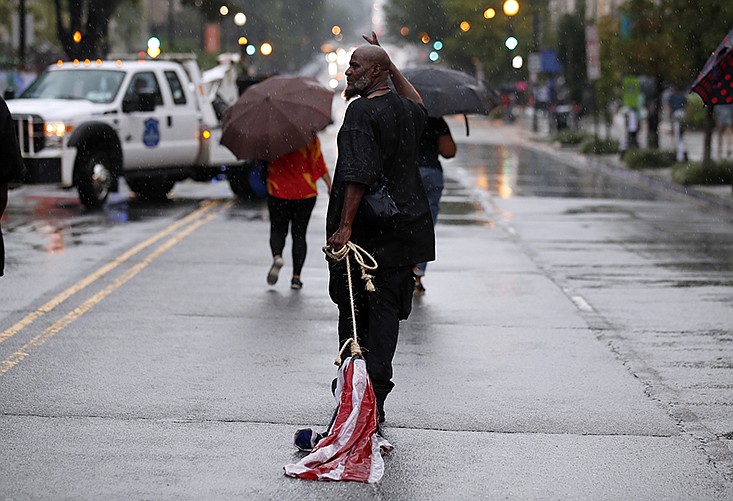In my years as a pilot for a major airline, I've spent lots of time in downtown hotels throughout our great country. An interesting phenomenon I've noted is the difference in monuments to the American war fought between 1861 and 1865. Most of the monuments were erected in the decades immediately after the war.
For instance, in New York and Indianapolis, among others, the war was most commonly referred to as "The War of the Rebellion." However, in Southern cities like Raleigh, Charleston, Jackson or Birmingham, the war is called "The War Between the States."
Never is there a reference to the Civil War, and for good reason. "Civil war" is defined as a war between citizens of the same country. Both sides knew there was no civil war. The Southern states seceded and formed the Confederate States of America, as they were legally entitled to do under the Constitution of our federal republic. Only after the war, when Northern politicians attempted to justify their invasion of the South, was the war called "The Civil War."
President Lincoln decided, without either legislative or judicial branch support, that "a house divided could not stand," therefore, the union had to be preserved. He issued an order for Southern governors to raise 75,000 troops to "quell the rebellion" in South Carolina. It was a tragic error in judgment, and resulted in Southerners who were previously undecided on secession to enthusiastically join the new effort to defeat Northern tyranny.
Unfortunately, despite giant leaps in technology, we haven't learned much from history. More than 150 years after that tragic war and its ugly aftermath, we again are a divided country. Our bloodiest war is portrayed not as a war fought against the over-reach of federal government but as a war fought by evil bigots whose only desire was to enslave African descendants. It is a narrative perfectly suited to those advancing a leftist political agenda today, and for those wanting to destroy the greatest nation on earth.
This year will be remembered as the year the political left dropped its cloak and clearly revealed those intentions. It began with Democratic legislators sitting and scowling into the cameras during the State of the Union address as our president announced great achievements on behalf of all Americans. It continued as the left used a crazed young man who shot 17 Florida high school students to portray patriotic Americans who believe in our Bill of Rights as the problem. Ironically, the left is strangely silent about the 1,876 people shot this year in Chicago.
This summer we've seen more protests by the radical leftist groups ANTIFA and Black Lives Matter chanting, "No borders. No Wall. No USA at all!" Sanctuary cities that defy U.S. immigration authorities are increasing throughout the country. Finally, Democratic congressional leaders continue to shamefully defend disgraced federal law enforcement authorities such as Peter Strozk and James Comey whose actions were instrumental in the 2016 presidential election.
Those on the left are enraged that a nonpolitician was elected on a platform to make our country great again, and, despite his arrogance, he has done exactly what he told his constituents he would do. Not since Abraham Lincoln has a presidential election so deeply divided us. Could our divisiveness push us toward America's first "civil" war? The election this fall will be a huge indicator.
Roger Smith, a local author, is a frequent contributor to the Times Free Press.

